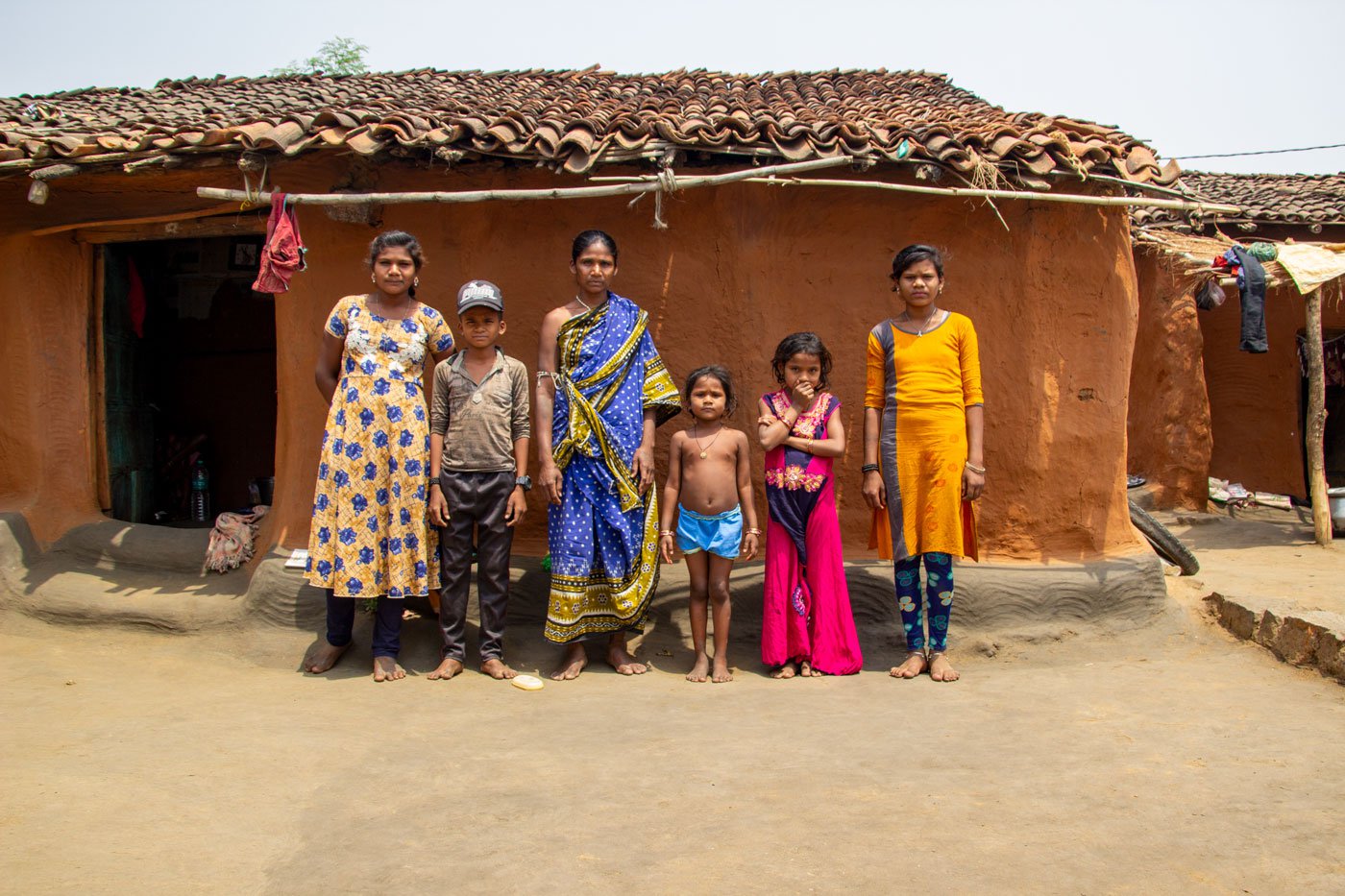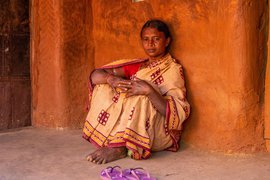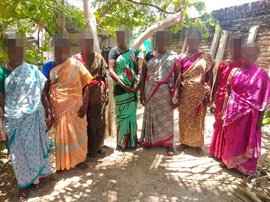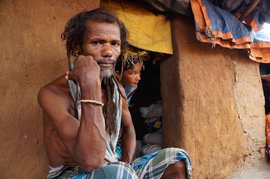A grandmother many times over, Bute Majhi is worried about the six girls and two boys her son has left behind; the youngest is six-year-old Janaki. “I don’t know how we are going to raise them all,” says the 70-year-old Gond Adivasi, a resident of Hial village in Balangir district of Odisha.
Her son Nrupa Majhi was 50 years old when he succumbed two years ago to what the family believe was kidney failure. A migrant worker, he and his wife, Namani, 47, would travel to Telangana, Andhra Pradesh and Tamil Nadu to work in brick kilns.
“In November 2019, we went to Chennai to work in a brick kiln,” says Namani. She says 10 people from their family went, among them her husband Nrupa, 50, their eldest son Judhisthir who is 24-years-old and his wife Parmila, 21, Purnami, 19, Sajne, 16, Kumari, 15, and her husband Dinesh, 21. “Each one of us was paid an advance of 25,000 rupees by the local
sardar
[contractor],” she adds. Accompanying the family were 10-year-old Sabitri and six-year-old Janaki, who were not paid.
In June 2020, they all returned to their village during the Covid-19 lockdown. The government of Odisha had made arrangements for temporary medical and quarantine areas in schools and community centres, for returning migrants. “We stayed in the village school for 14 days. My husband and I got 2,000 rupees each [from the government of Odisha] for staying there,” recalls Namani.
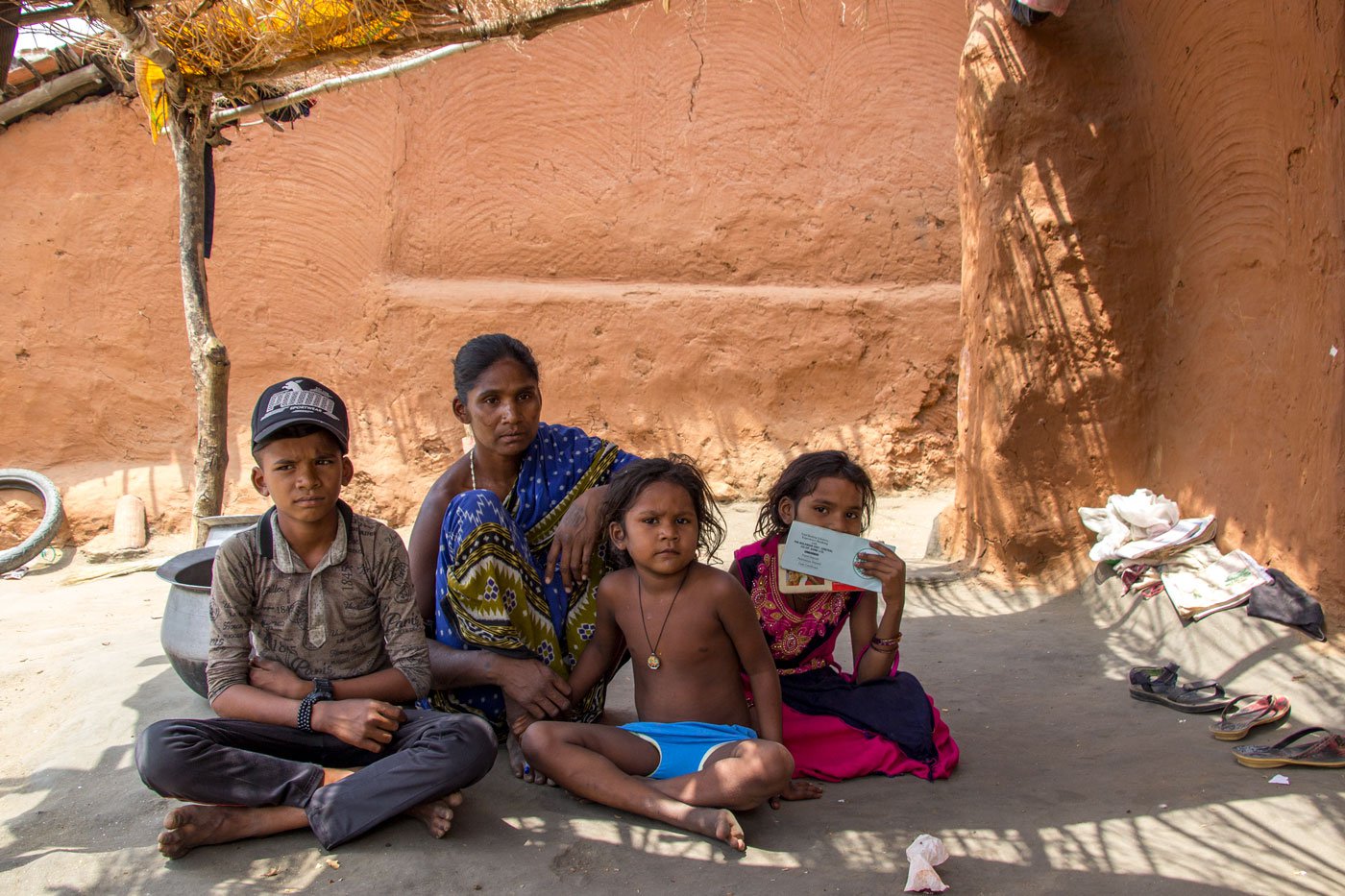
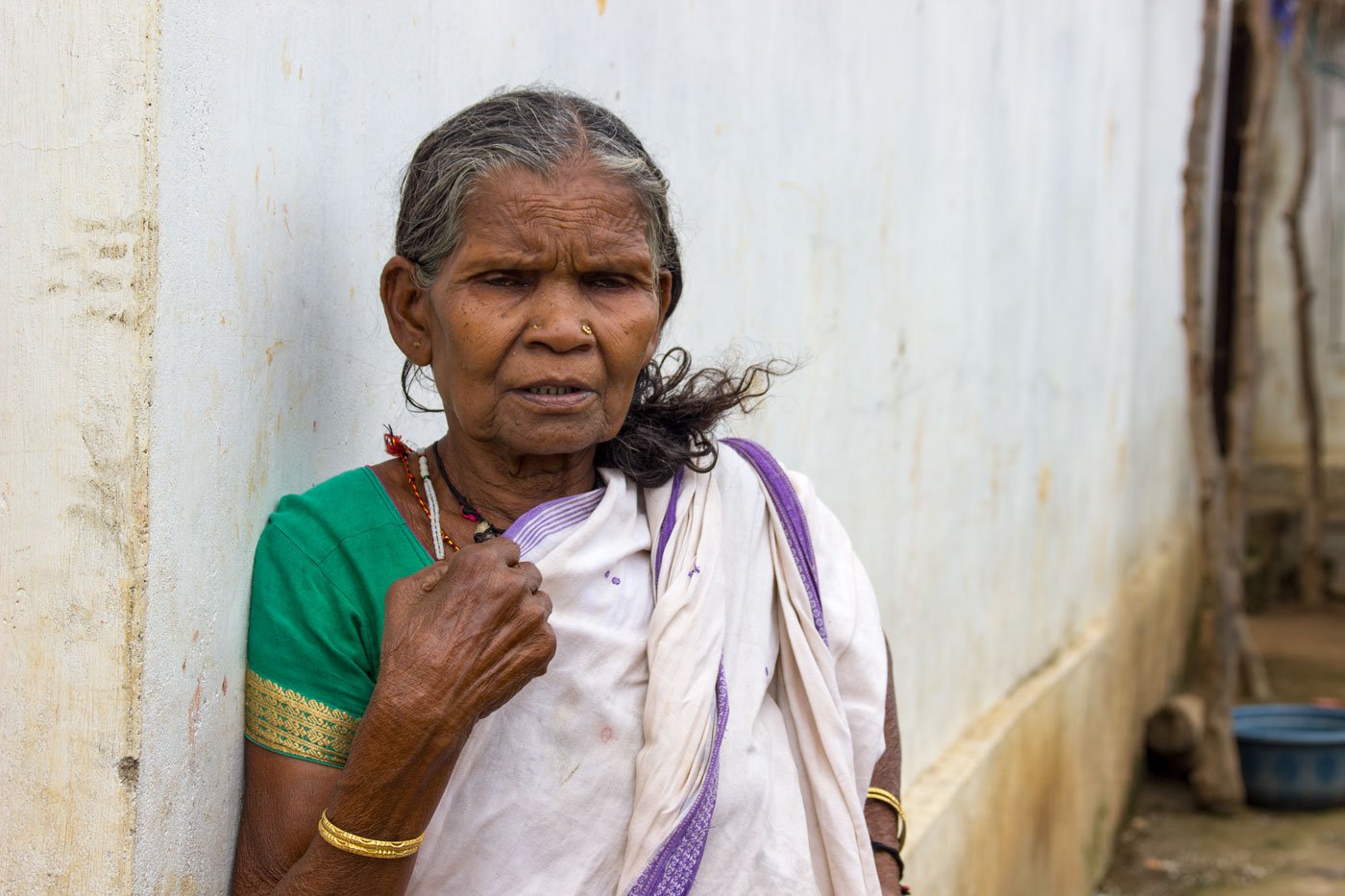
Namani Majhi sitting with her children in front of their house in Hial village in Balangir district. Her mother-in-law, Bute Majhi
But things soon began to unravel. “He [her husband, Nrupa] had started falling ill in Chennai itself. The seth [local contractor] used to give him glucose water and some medicines. His health problems continued even after we returned to our village,” recalls Namani. She took him to the government hospital at Kantabanji for treatment. Bute, Nrupa’s mother added, “My son started having rakta jhada [passing blood in stool].”
The family took him to several government hospitals in Sindhekela and Rampur as well. Finally, back at the Kantabanji hospital they were told by the doctor there that he had kamjori (weakness). “We did not have money, so we came back and made arrangements for money. When we went to the hospital, the doctor did some tests and said that his kidneys were failing.”
Namani was determined to try other options and decided to switch to alternative medicine. “My parents suggested that I take him to Sindhekela [25 kilometres away] for Ayurvedic treatment. He was on medication for over a month, but didn’t get well,” she said. When his health condition worsened, they moved him to a Community Health Centre in Rampur near Patnagarh, 40 km away.
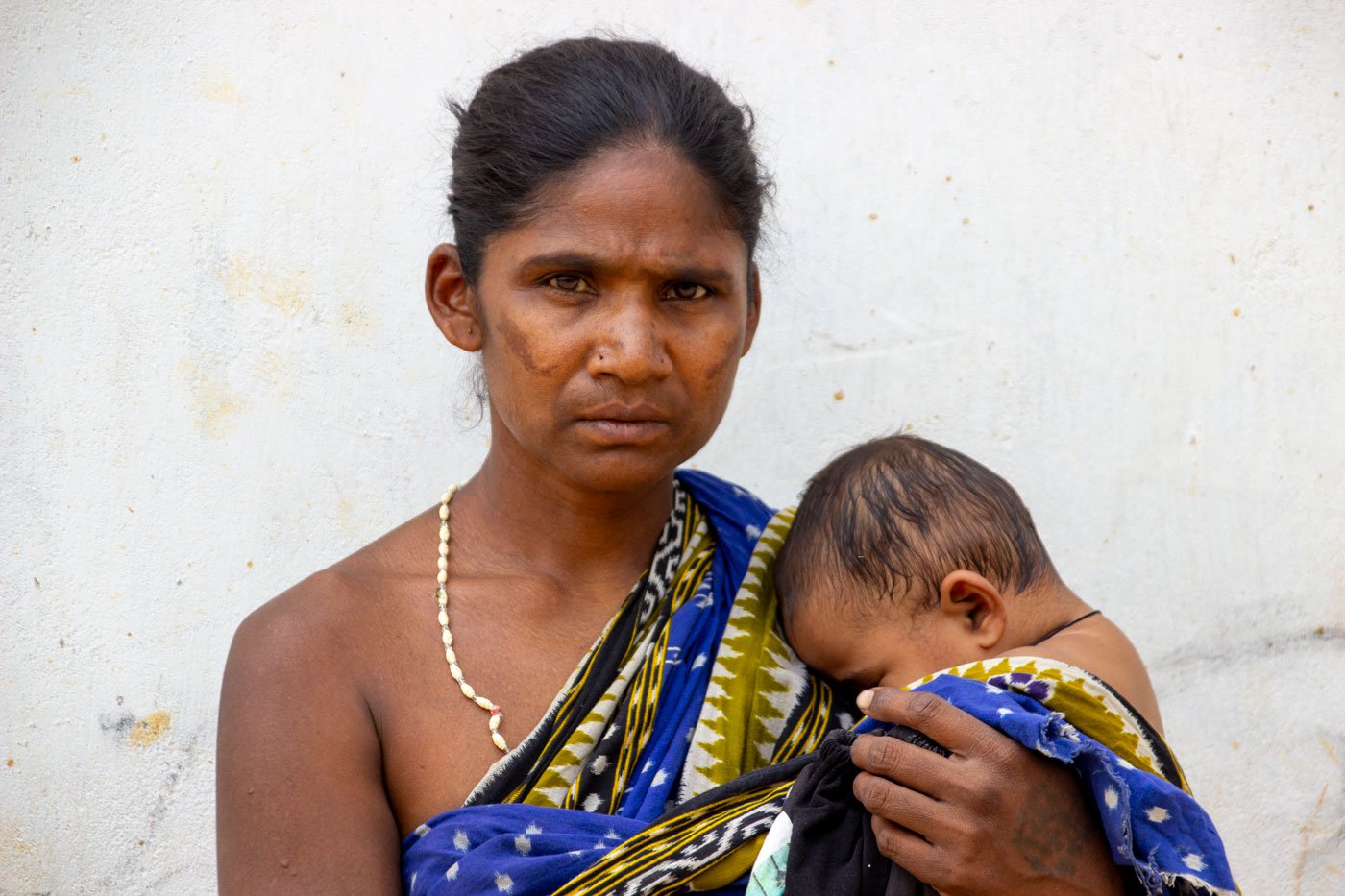
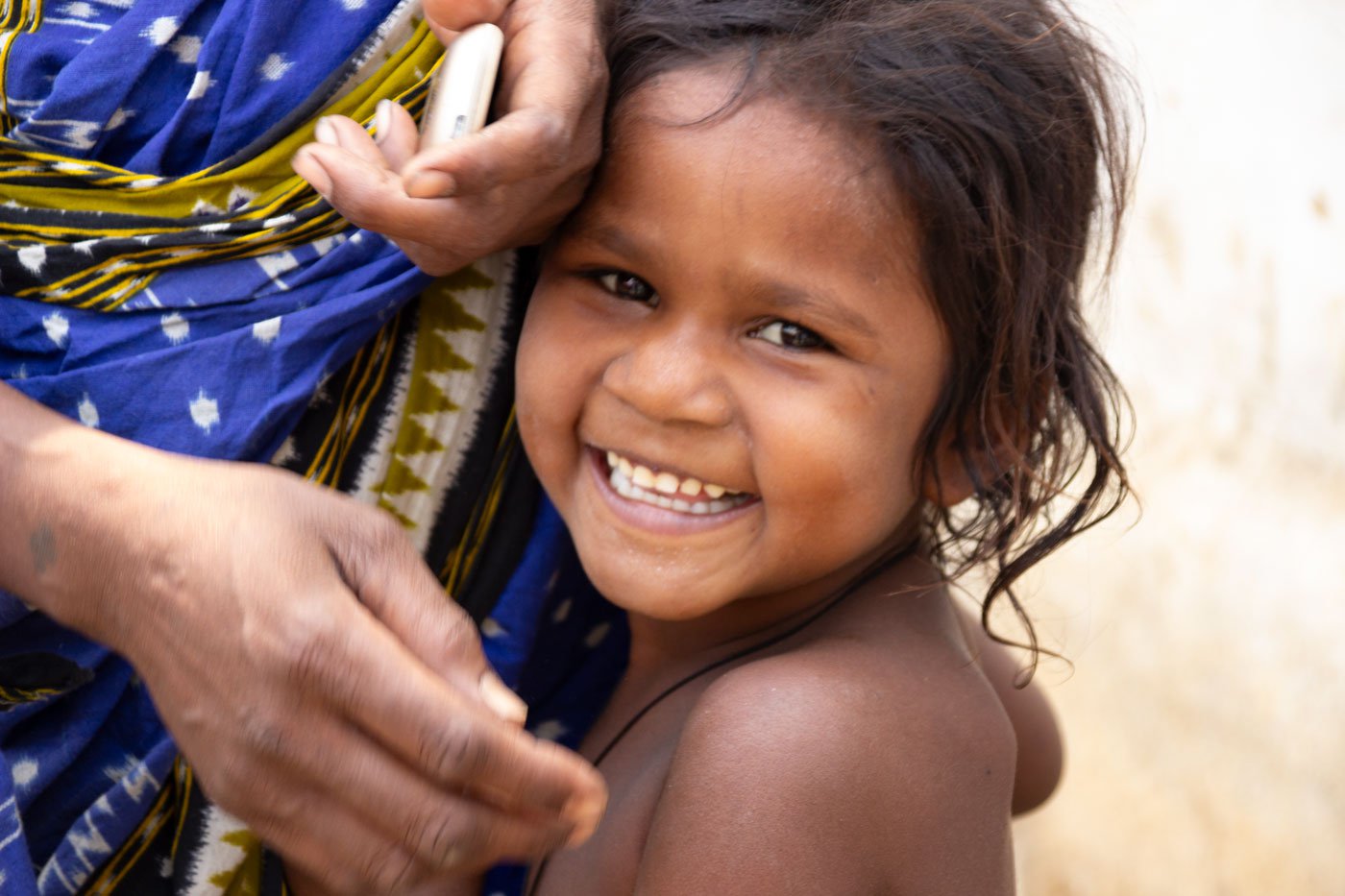
Namani holding her eight-month-old granddaughter, Dhartiri. While being photographed, Janaki tries to hide behind her mother Namani
The family hoped they could claim compensation to pay his medical bills and subsist for a while as Namani is still unsure about migrating again. “We may have to go again because we have to pay back the debts taken for my husband’s treatment. If we get some help from the government, we will not go.”
The late Nrupa was among the small percentage of Odia workers who did register himself as a beneficiary at the welfare board in 2018, but his family has not been able to avail of any funds due to them. The ‘help’ Namani is referring to is Rs. two lakh that are due to her late husband under the Odisha Building and Other Construction Worker’s Welfare Board. “They [labour department officials] say that we haven’t paid [renewal] fees for three years, so we cannot get the money,” she says.
The money held by the state, points out the Comptroller and Auditor General of India (CAG) in its state financial report, is in violation of Constitutional provisions. The report says, “the labour cess amounting to Rs. 406.49 crore collected during 2020-21 was kept outside the ‘Government Account’ in the shape of fixed deposits and flexi savings account at State Bank of India, government treasury branch, in violation of Constitutional provisions.”
Bute says, “When Nrupa fell ill, he went to his sister Ume [his only sibling], to ask for monetary help." Ume is married and lives in a nearby village [Malpara, also known as Malpada]. "She gave her jewellery to him. That was the kind of affection both shared with each other," Bute added. Nrupa mortgaged the jewellery and got a few thousand rupees which went towards his treatment.
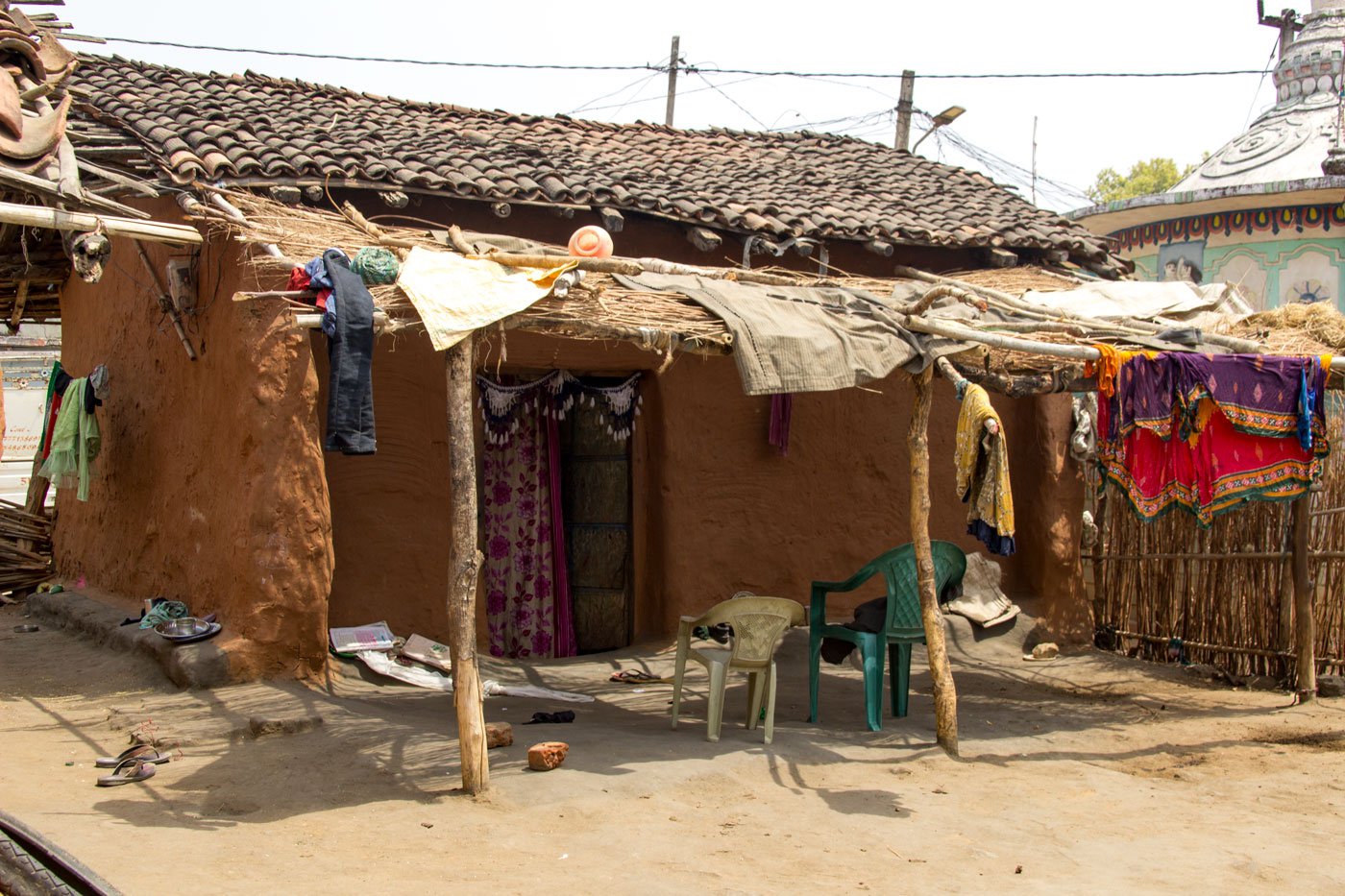
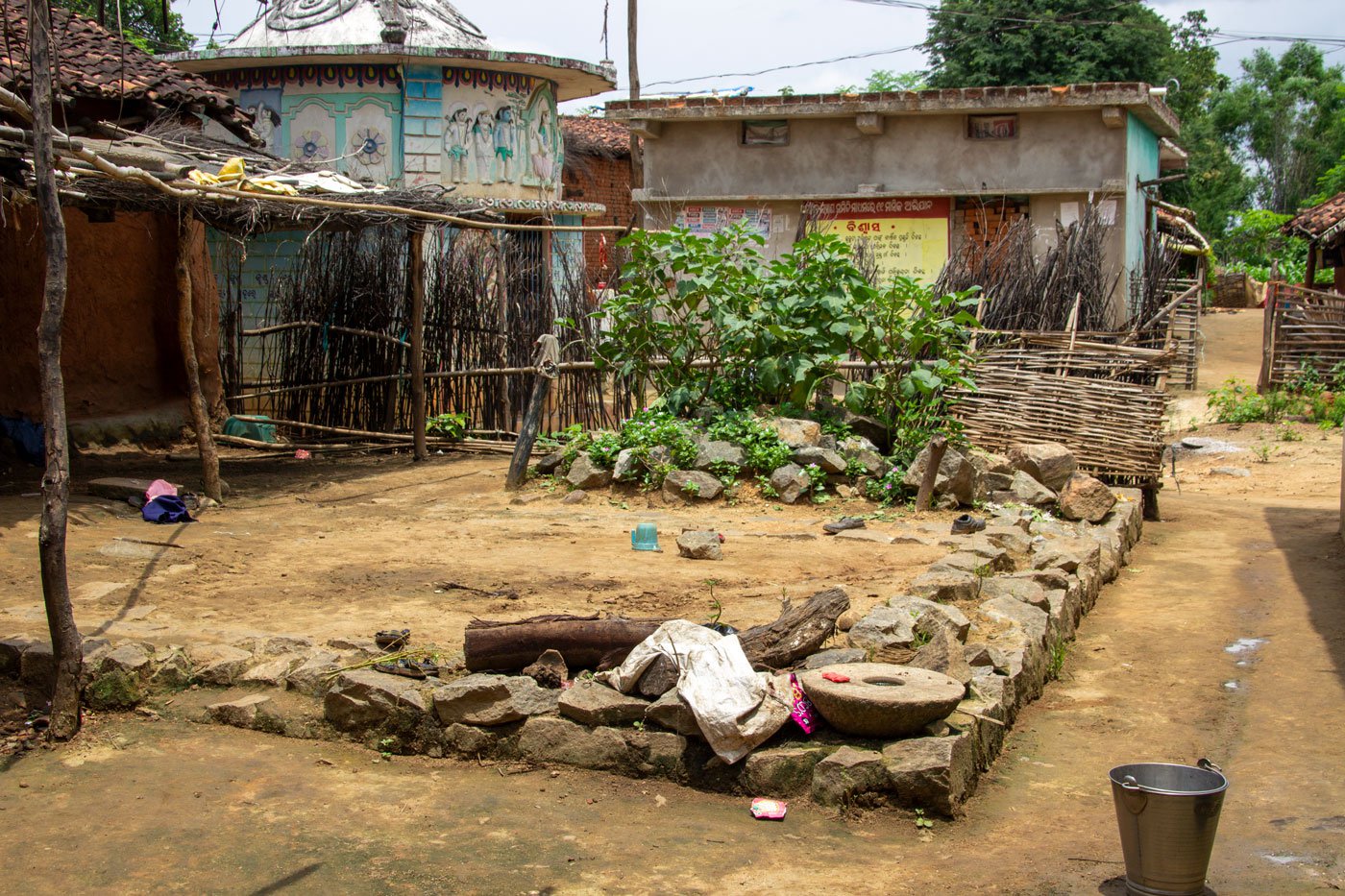
Left: The two kachha houses in which the family of late Nrupa Majhi live. Right: These stones were purchased by Bute and her husband Gopi Majhi to construct their house under Indira Awaas Yojna, but Gopi's demise has paused that work
The family of Bute and her late husband Gopi Majhi had been allotted a government house in 2013. Gopi Majhi passed away in 2014. “We had received 40,000 rupees in three instalments – 10,000, 15,000 and again 15,000 rupees when Gopi was alive,” said Bute. The family purchased stones and sand for constructing the house but when the senior Majhi died, the construction of the house stopped.
“Somehow we are managing in this
kachha
house,” said Bute, pointing towards the block of stones purchased waiting to be used.
Unlike her son and daughter-in-law, Bute has never migrated to other states to work. “We used to cultivate our family land for a living. It was Nrupa who started going to other states for work,” she said. The family took a loan of Rs. 100,000 from the village
gountia
(moneylender) after mortgaging their land.
“Judhisthir [Nrupa’s son] will have to go to work and free that land,” Bute added.
*****
Before her marriage, Namani had never migrated out of Odisha for a living. The first time she went was as a couple to Mahbubnagar in Andhra Pradesh; their eldest son Judhisthir was in the third standard then. “The advance money for the job was very low – we received 8,000 rupees. I cannot recall the year but Sajne [daughter] was just few months old so we took her along with us.” Namani says since then – 17 years ago – they have been going every year to different places to find work.
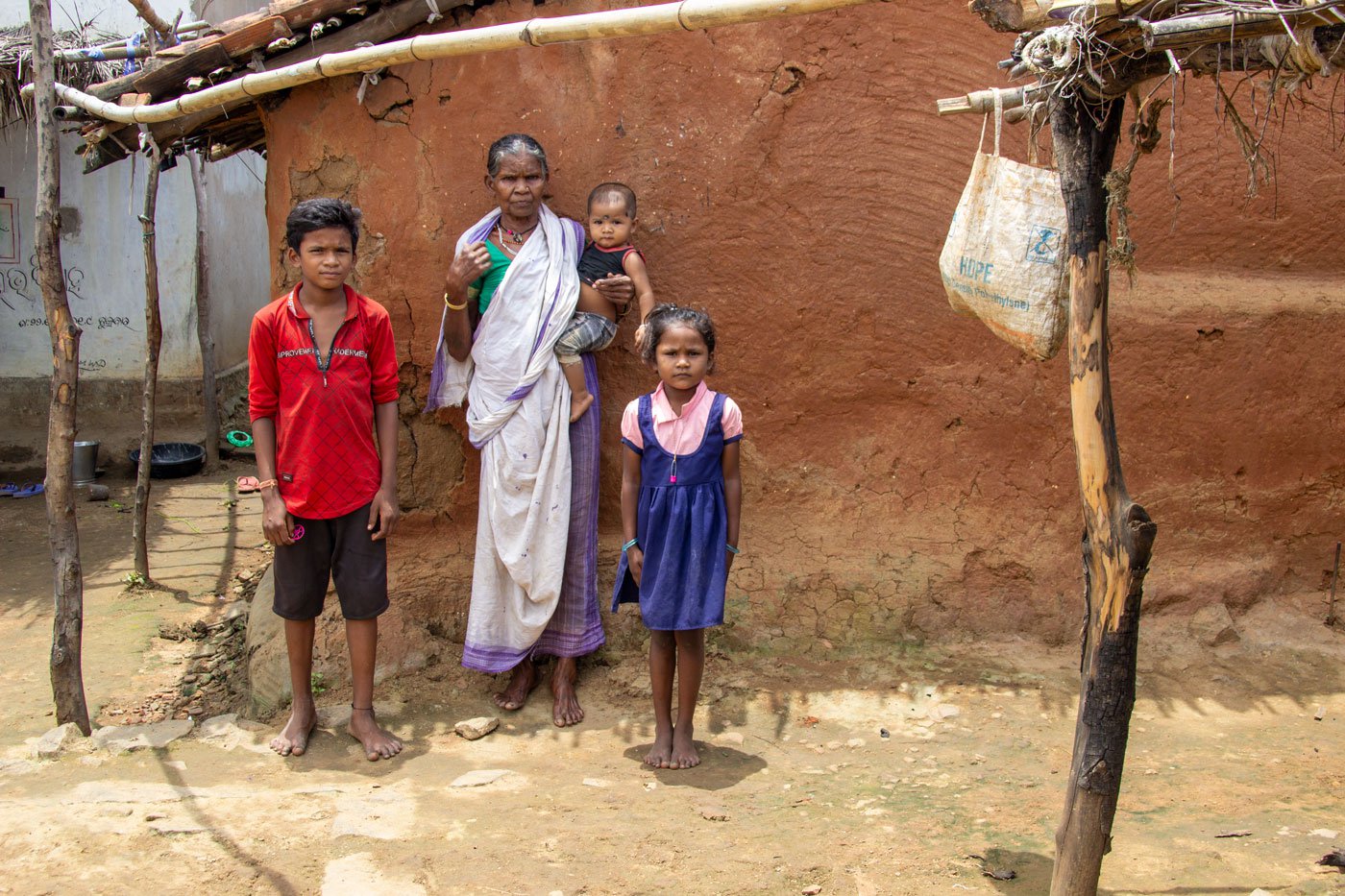
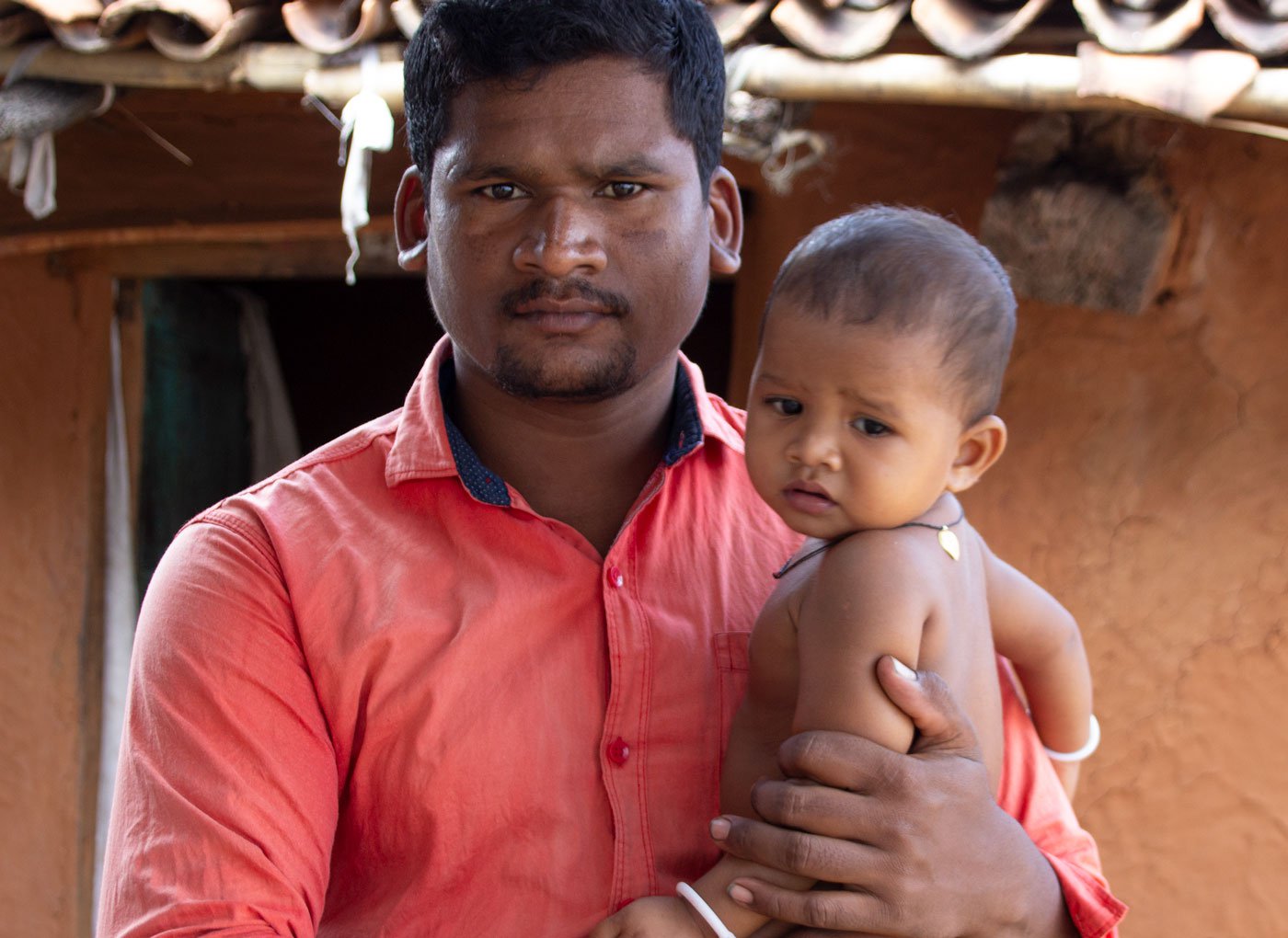
Left: Bute standing in front of her mud house along with her grandchildren and great grandchildren . Right: Namani's eldest son Judhisthir holding his daughter Dhartiri
After the first time, the family migrated every year. “For two years we again went to Andhra Pradesh. The advance we received then was around 9,500 rupees,” she says. The next four years they kept going back and the advance gradually increased to Rs. 15,000 for the entire group.
The trips to Chennai brought in the most money – an advance of Rs. 25,000 in 2019. In Chennai, for every 1,000 bricks, a group of workers would then earn around Rs. 350. And in a week, a group of four workers could expect to be paid Rs. 1,000-1,500 each.
They were paid weekly and used the money to buy food rations, soap, shampoo and more. “When making the payment, the supervisor would deduct some money from the advance and give the remaining wages to us,” explained Namani. This would go on till the entire advance amount had been deducted.
Most workers would finally get less than Rs. 100, which is less than half the minimum
wage
for unskilled workers in the construction sector. The office of Chief Labour Commissioner, union Ministry of Labour and Employment, stipulates that workers making chamber bricks should be paid Rs. 610 (for 1,000 bricks) per day in urban areas such as Chennai.
The wages Nrupa and his family earned were in blatant violation of these labour laws.
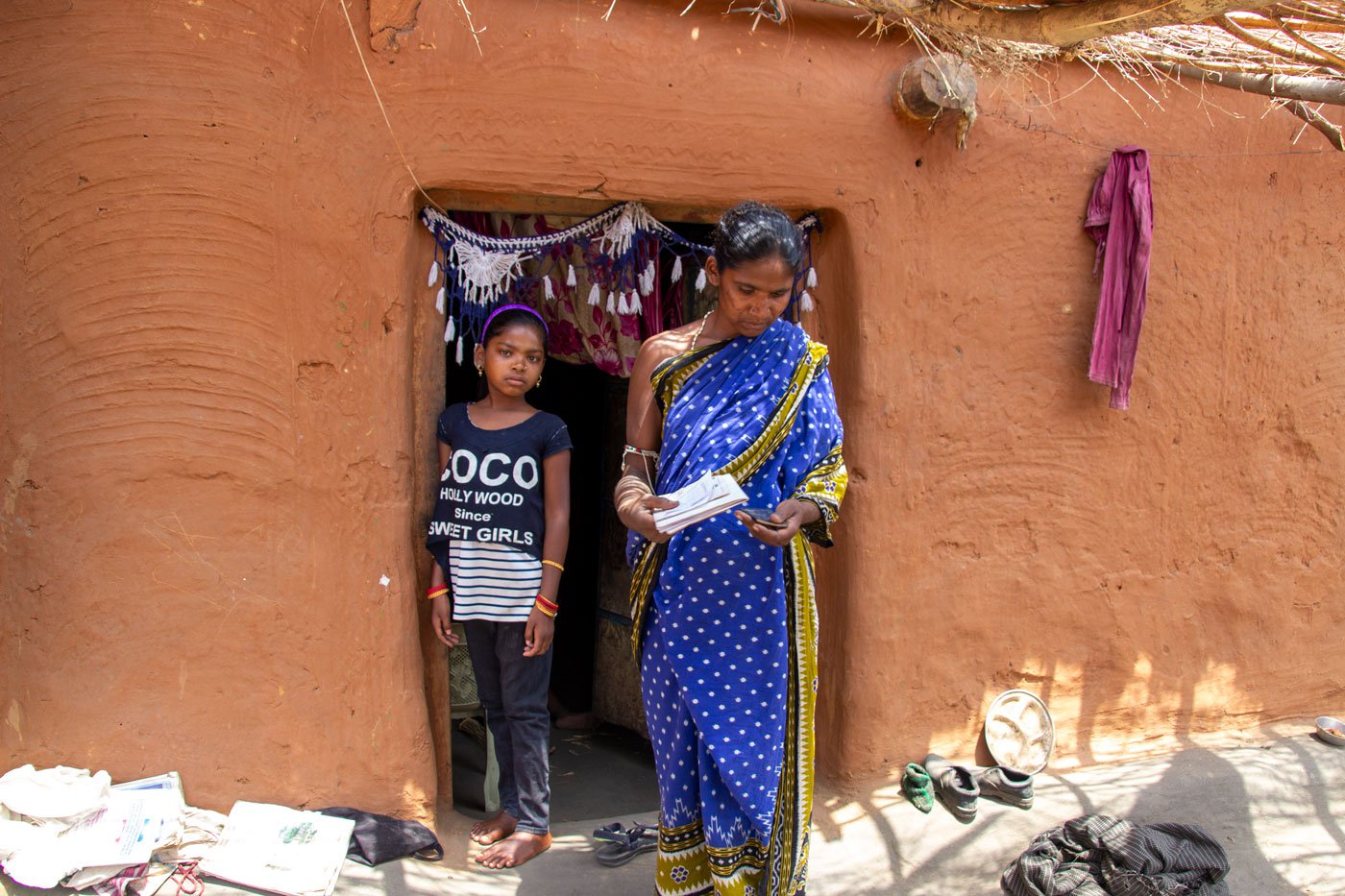
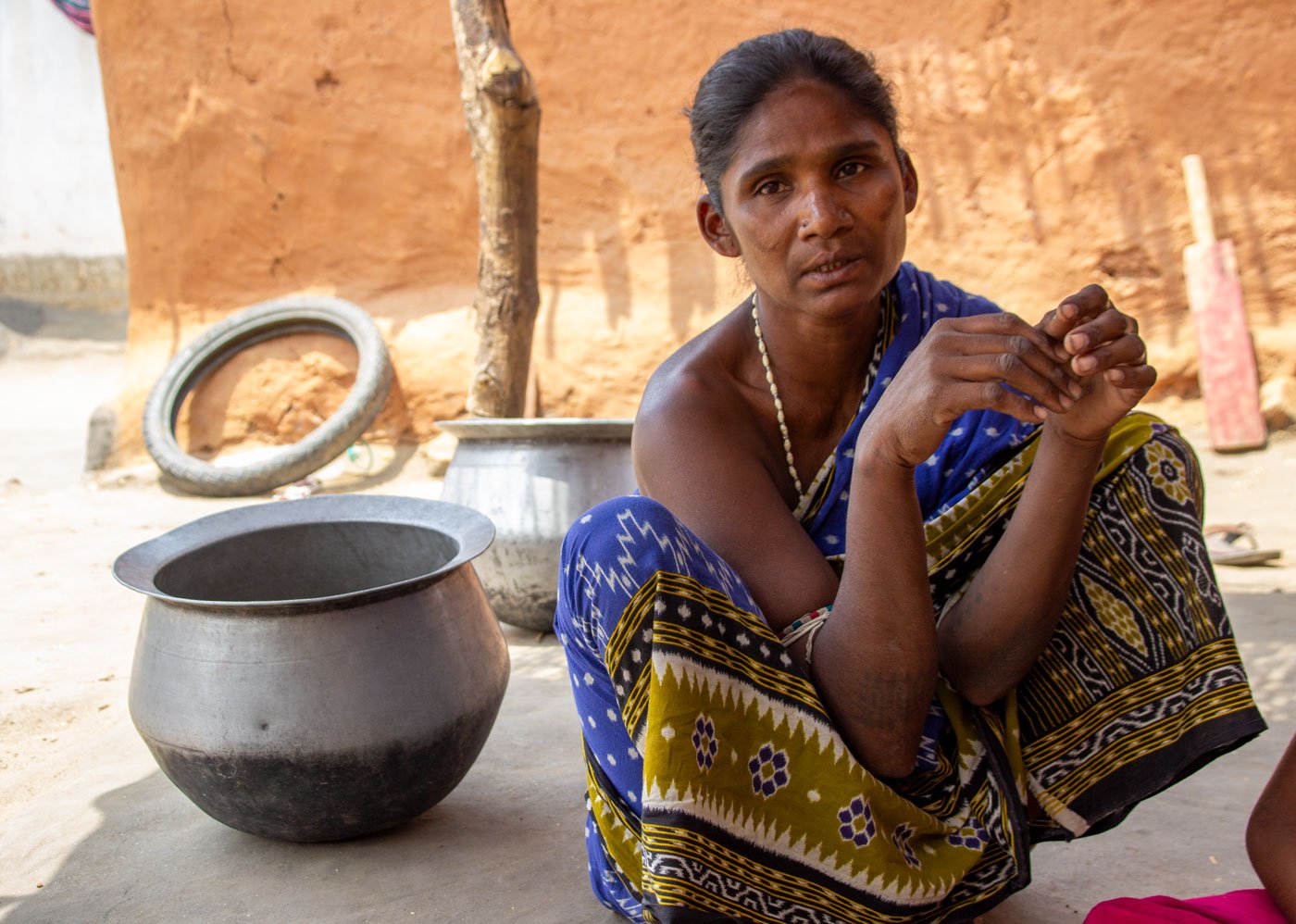
Namani holding a labour card issued by the Balangir district labour office. It has been more than a year since her husband died and Namani is struggling to get the death benefits that his family are entitled to under the Odisha Building and other Construction Workers Act, 1996
Most of the Odia inter-state migrant workers engaged in building and other construction works are not registered as beneficiaries under the Odisha Building and other Construction Workers Act, 1996, which provides for their safety, health and welfare measures.
However, Nrupa had registered himself, but his family is being penalised under a small loophole: For a labourer to avail benefits, the registered beneficiary has to contribute Rs. 50 towards its funds for three consecutive years. The payment must be made at the labour department’s district office in Balangir, which is 80 kilometres from their home in Hial village, Balangir district.
After May 1, 2022, the procedure went online. Nrupa got his labour card just before he left for Chennai. He couldn’t travel to the district office to contribute the yearly funds because of lockdown and his illness. The family is now finding it difficult to claim the benefit they are entitled for.
